Layima Primary School
November 17, 2015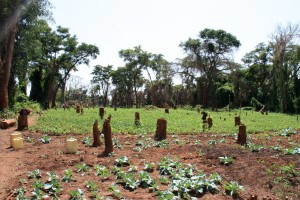 Layima Primary School is a remote school, surrounded by green fields and beautiful majestic trees. The school has come a long way since its humble beginnings in 1982 as a small community school. With the support of organisations such as Save the Children and NUDEIL, they have been able to build appropriate teachers’ houses and classrooms blocks for the nine teachers and 381 pupils of the school:
Layima Primary School is a remote school, surrounded by green fields and beautiful majestic trees. The school has come a long way since its humble beginnings in 1982 as a small community school. With the support of organisations such as Save the Children and NUDEIL, they have been able to build appropriate teachers’ houses and classrooms blocks for the nine teachers and 381 pupils of the school:
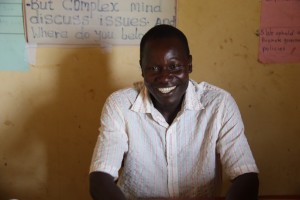 “If I am to compare the way this school has started, and where it is now – because at first, like let’s take from myself, because I am now making 3 years. The first time I came, there was no road leading to this school; not even borehole – you had to move a distance to collect water; no proper accommodation as for now; even, we don’t have even classes, but at the moment, we have. At first we have started with 100 something pupils, but now we are reaching 400! The school is now climbing the latter.” (Edward, Deputy (photo))
“If I am to compare the way this school has started, and where it is now – because at first, like let’s take from myself, because I am now making 3 years. The first time I came, there was no road leading to this school; not even borehole – you had to move a distance to collect water; no proper accommodation as for now; even, we don’t have even classes, but at the moment, we have. At first we have started with 100 something pupils, but now we are reaching 400! The school is now climbing the latter.” (Edward, Deputy (photo))
Step by step, the school is trying to overcome the challenges it faces – like the lack of parental awareness of the importance of education and involvement: parents often stop their children from going to school in the rainy season, as they are needed for harvesting crops; additionally, the majority of parents struggle to pay school fees which triggers severe financial difficulties for the school. This is exactly why the SDG project is so important for the school:
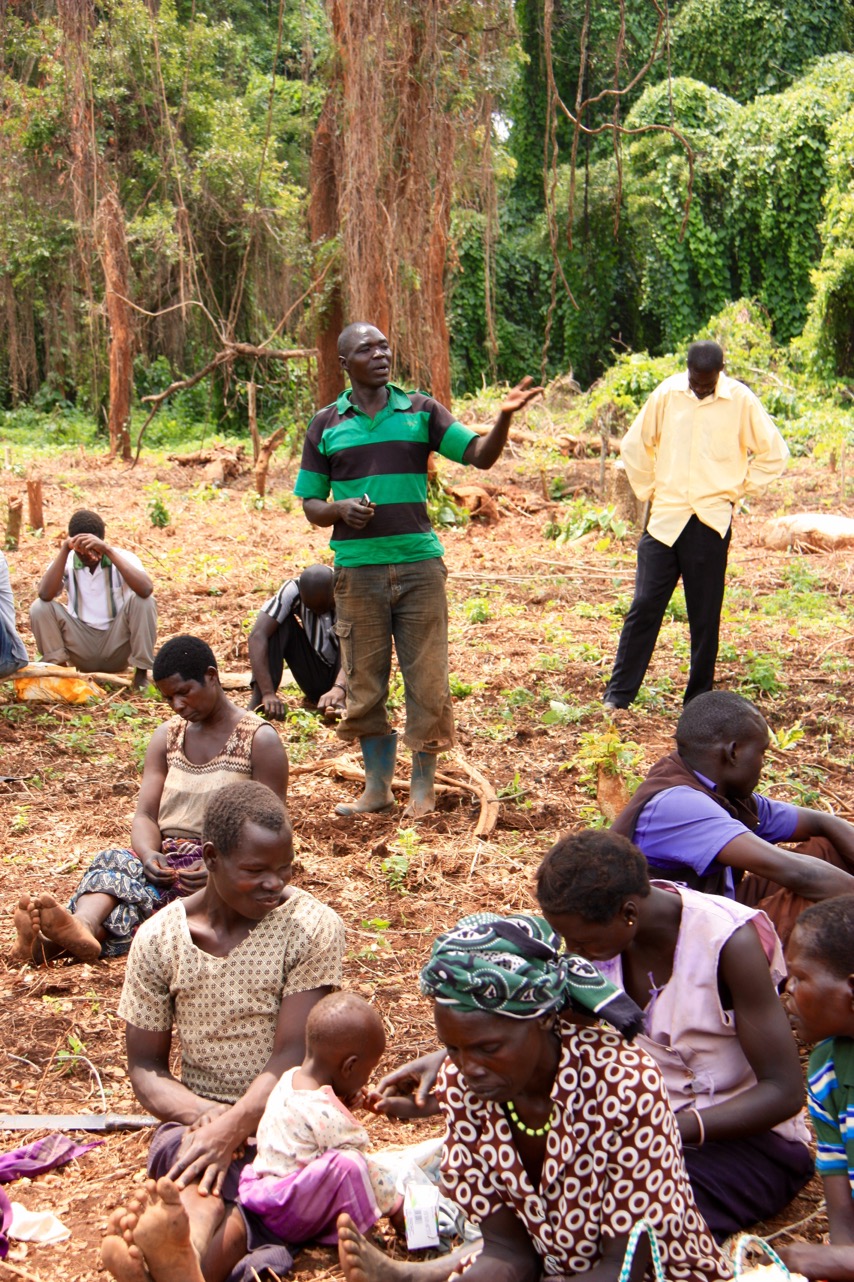 “This SDG can be one of the methods of creating awareness to the parents and they are now able to see the importance of education – through what they are doing in the club: The parents are learning in the club, because AR is giving them methods of planting, how to take care of crops, the methods of spraying, so they realise “how would I know this kind of pesticide to spray, if I have not gone? Now since my time is over, can I now reinforce the learning of my child?”
“This SDG can be one of the methods of creating awareness to the parents and they are now able to see the importance of education – through what they are doing in the club: The parents are learning in the club, because AR is giving them methods of planting, how to take care of crops, the methods of spraying, so they realise “how would I know this kind of pesticide to spray, if I have not gone? Now since my time is over, can I now reinforce the learning of my child?”
Through the parents we can give some light sensitisation as they spread the knowledge with the community. And now, on top of this, when the project is over, we can still mobilise people to make a larger group! Now when you start doing this there was a lot of information to take in, but people will see “ok I have now come to realise that it is my responsibility to make this place better” – so we can use this small group to expand to the other. So that I hope, within this year, that you will see a lot of changes to come. ” (Paul, pupils’ club focal teacher)
Deputy, Edward, even gives example of changes:
 “At first, parents, most of the parents, they don’t come to school to visit their children, to see how their children are studying but with this demonstration, they have started coming. When they will be coming for the work, some of them take they time and monitor how the children are learning. The way it is, they have heard that they are going to benefit, and one of the benefit, the day they will sell these, whatever they are doing, part of that money, they will pay for their children to go to the school – that’s what they are usually saying. And more so, some of them, started doing this community work at school – like clearing this field. They did it. To me, I think, it is because of this demonstration – otherwise, they wouldn’t have done it.”
“At first, parents, most of the parents, they don’t come to school to visit their children, to see how their children are studying but with this demonstration, they have started coming. When they will be coming for the work, some of them take they time and monitor how the children are learning. The way it is, they have heard that they are going to benefit, and one of the benefit, the day they will sell these, whatever they are doing, part of that money, they will pay for their children to go to the school – that’s what they are usually saying. And more so, some of them, started doing this community work at school – like clearing this field. They did it. To me, I think, it is because of this demonstration – otherwise, they wouldn’t have done it.”
Moreover, the Deputy has also seen the skills which can be transferred back to the parents’ villages and greater community:
“For example, there is one woman here, who has started using this, how do you call it, it is a system of planting, where you get a sack, pour some sand inside and you put holes in side for onions … There are many in this community. They have started practising. That is really very encouraging.”
Furthermore, an unexpected benefit which the school has experienced through the SDG, is a slow easing of a land dispute between the original land owner and founder of the school grounds and the community. Ever since his wife and other members of his family have been taking part in the SDG, the situation has become more peaceful and slow reconciliation is taking place.
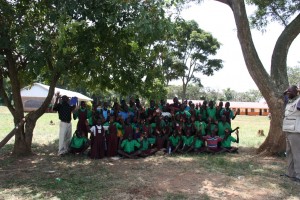 Not only is the parent-led SDG enjoying success at the school, pupils were also eager to join the pupils’ entrepreneurship club ! The pupils are actively participating with great motivation which is sure, to make this project successful! Additionally, teachers unanimously agree that the pupils’ club will be beneficial for its members, as well as the greater community:
Not only is the parent-led SDG enjoying success at the school, pupils were also eager to join the pupils’ entrepreneurship club ! The pupils are actively participating with great motivation which is sure, to make this project successful! Additionally, teachers unanimously agree that the pupils’ club will be beneficial for its members, as well as the greater community:
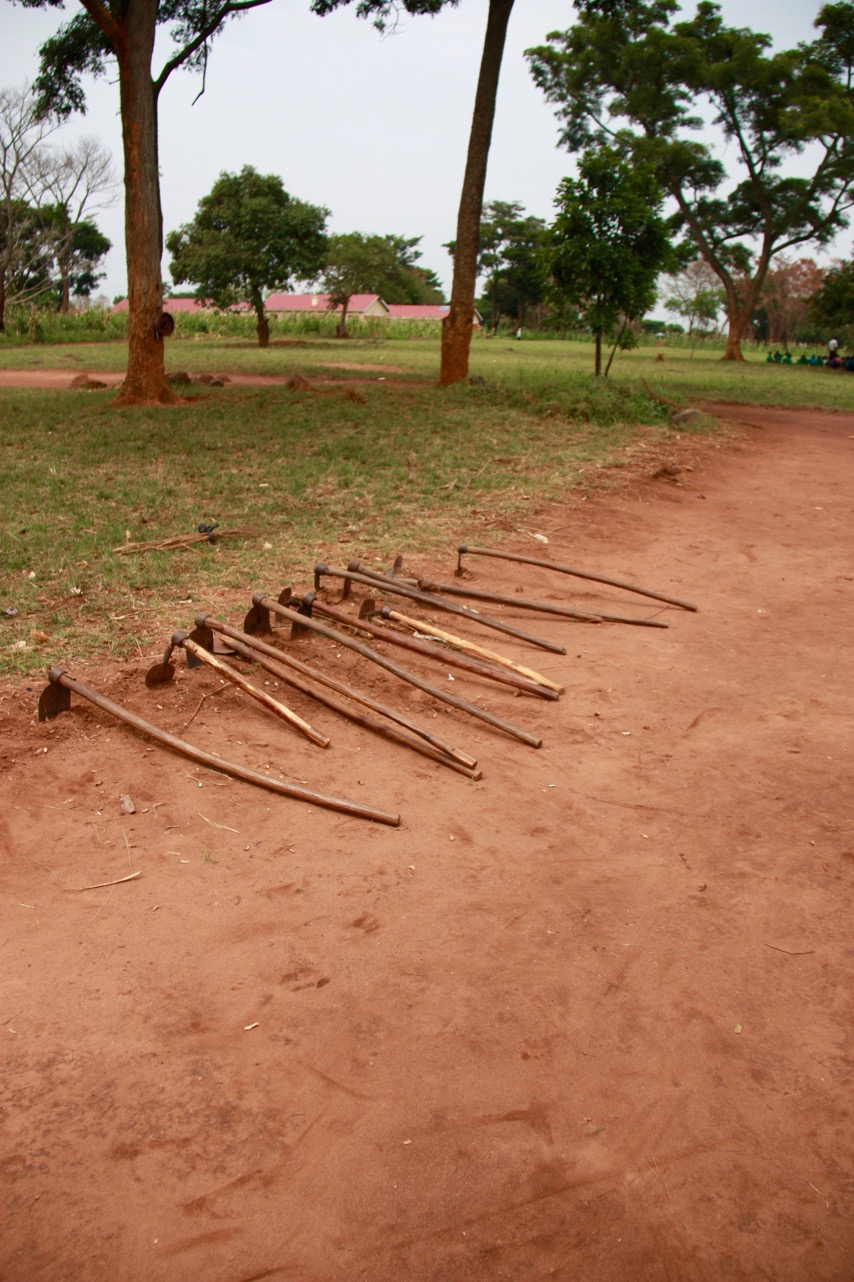 Yeah acquiring agriculture skills are important, because they can, from here, even if those who cannot be in position to go further with their studies, they can be self-reliance. They can feed them by themselves. And more so, this project can encourage them to do much even from home. (Edward, Deputy)
Yeah acquiring agriculture skills are important, because they can, from here, even if those who cannot be in position to go further with their studies, they can be self-reliance. They can feed them by themselves. And more so, this project can encourage them to do much even from home. (Edward, Deputy)
This club is really very interesting, because it promotes pupils to being self-reliant, cause when they practise like planting onions, when they practise like when they are in the school here, and then when they go back to their villages, I think, when they go back with what we have given them, plant here properly, from who they will go and direct income. So it is very welcoming to me. (Patrick, club’s focal teacher)
